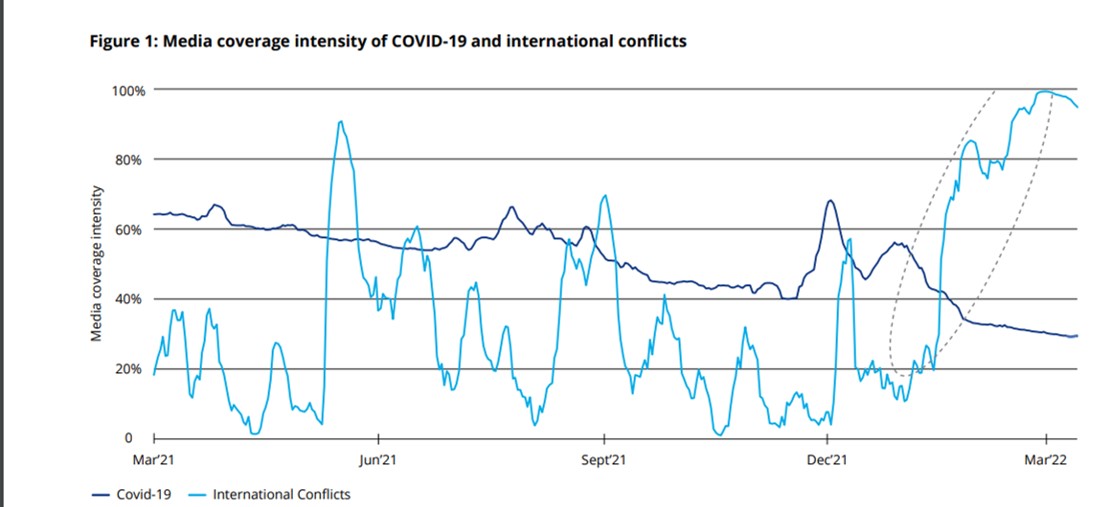Institutional investors such as sovereign wealth funds – which in some ways resemble family offices in their investment habits – have taken risk off the table as central banks have started to hike rates reacting to geopolitical worries such as Russia’s invasion of Ukraine.
The findings come from and the International Forum of Sovereign Wealth Funds (IFSWF), a global network of sovereign wealth funds from 40 countries. Collectively, State Street looks after more than $43 trillion of assets as a custodian and administrator for SWFs.
Based on State Street’s Behavioural Risk Scorecard, sentiment turned negative in February, falling to the lowest point in two years.
“As economies around the world emerged from the long shadow cast by the Covid-19 pandemic, investors are faced with new risks. Today, risk assets are re-pricing due to international conflict, inflation, and central bank policy responses,” Neill Clark, head of State Street Associates, Europe, Middle East and Africa (EMEA) said.
“Following a period of opportunistic rebalancing and selective risk-taking during 2020, the past year has seen institutional investors moving towards safer assets and markets. Their asset allocation decisions suggest they are no longer adding to their equity exposure – which they had been doing since Q1 2020 – and, instead, are adding to their fixed-income and cash balances,” Clark said.
The following chart highlights how media focus on the pandemic gradually flattened off and declined in recent weeks (in most regions) while the coverage of conflcts, most obviously Ukraine, rose rapidly.

Source: State Street.
The new report reveals that strong capital outflows from emerging markets – the largest level of selling observed over the previous five years – have been matched by robust demand for stocks in developed markets.
“When it comes to the investment strategies of sovereign wealth funds, most are taking the long view, which can sometimes mean a contrarian stance,” Duncan Bonfield, chief executive, ISFWF, said. “For example, one of our members has increased its emerging-market equity positions as the value/price gap widened, as emerging-market equity was cheaper than it was six months ago relative to its fair value estimates.”
In fixed income, the report reveals that heightened geopolitical risk has seen capital outflows from emerging-market sovereign debt, while high-quality, developed-market sovereign bonds are maintaining stable capital inflows despite rising domestic inflationary pressures.
Euro and US dollar-denominated corporate credit has also seen outflows, driven by a challenging combination of rising rates, high inflation and slower growth, tapering of quantitative easing from global central banks, and potential ripples from Russian sanctions as well. One beneficiary of the credit uncertainty and rising inflation pressures is the US Treasury Inflation-Protected Security (TIPS) market, where there has been renewed appetite from institutional investors, who also favoured currencies which displayed less negative exposure to the developing international conflicts.
